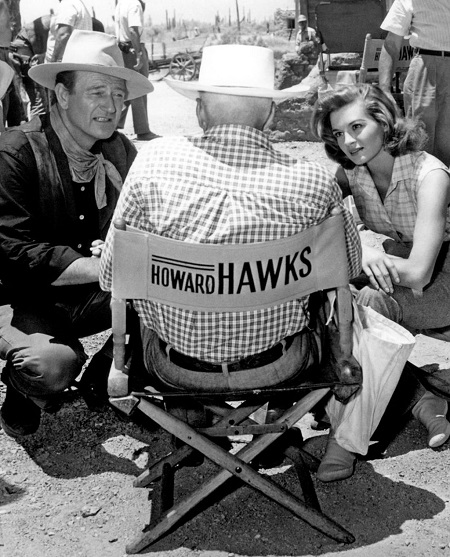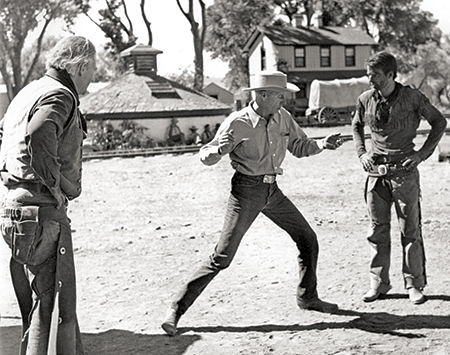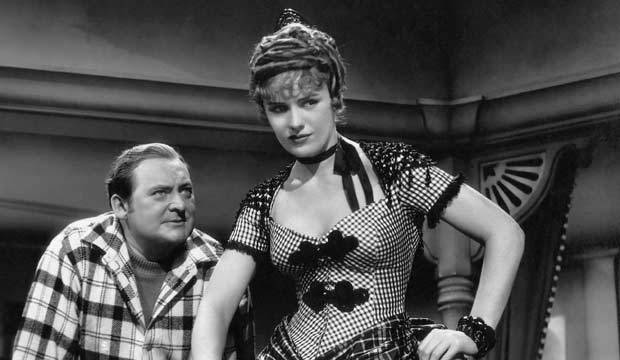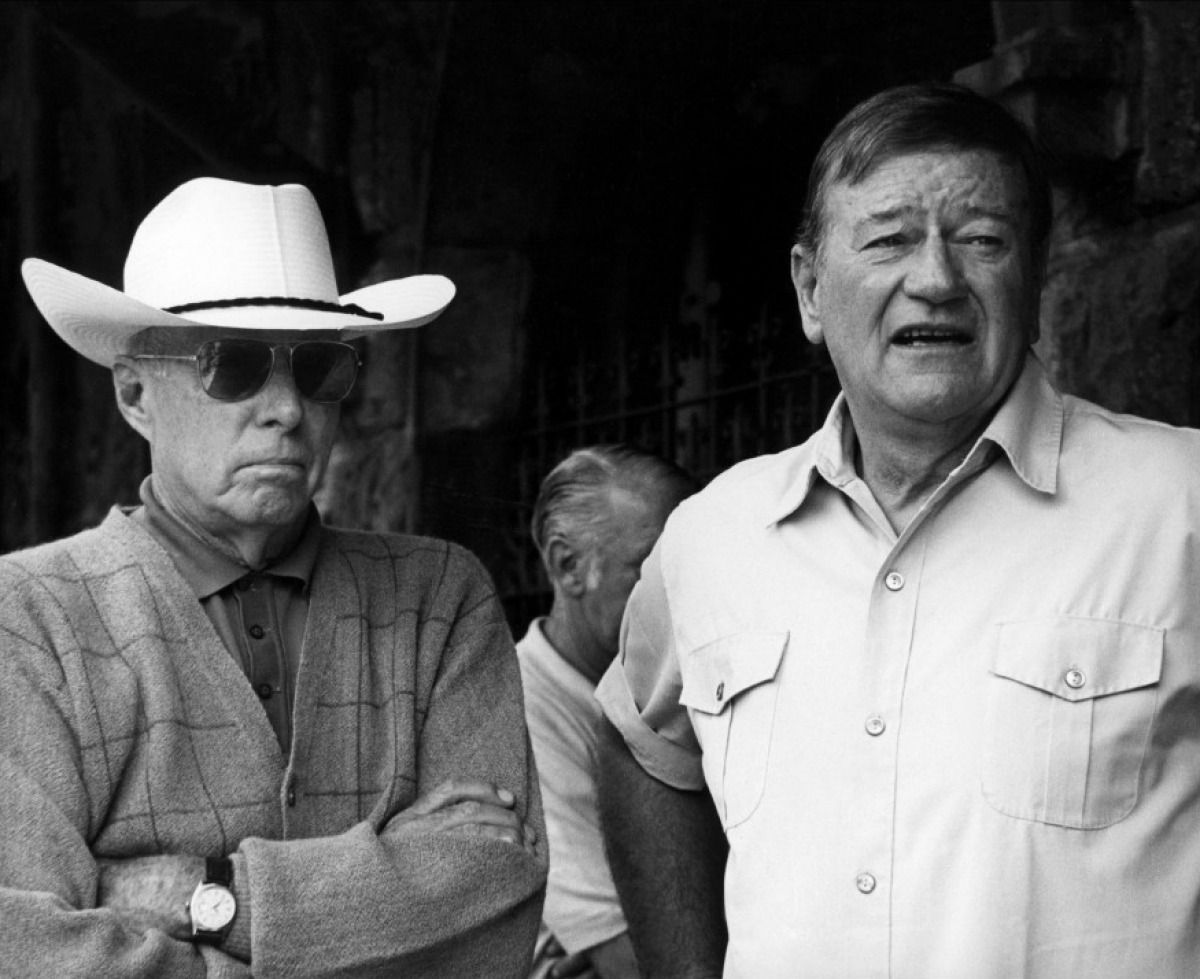Intermarkets' Privacy Policy
Donate to Ace of Spades HQ!
aceofspadeshq at gee mail.com
Buck:
buck.throckmorton at protonmail.com
CBD:
cbd at cutjibnewsletter.com
joe mannix:
mannix2024 at proton.me
MisHum:
petmorons at gee mail.com
J.J. Sefton:
sefton at cutjibnewsletter.com
Overnight Open Thread [02/09/2026]
Ghost Walk Cafe
Japan's "Ultra-Right-Wing" Extremist PM Wins a Shockingly Large Victory By Running on Promise to Seriously Restrict Immigration to the Island Nation
Remember the Little Scottish Girl Who Armed Herself with a Knife and Ax to Defend Herself Against, She Said, Sexual Assault by a Foreigner? Remember How the British Government and Media Savaged Her as a Racist?
FBI: Jeffrey Epstein Was a Child Sex Abuser But He Wasn't Running a Pedophile Sex Ring for the World's Rich and Famous
Left-Wing "Scoop" That Tulsi Gabbard Was on a Secret, Traitorous Phone Call with a Foreign Person Blows Up Within Hours, Exposed As Another Schiffian Hoax
Fifth Circuit Court of Appeals Overrules Lawless Lowly District Court Judges, Rules that Illegal Aliens May Be Held Without Bond While They Fight Their Deportation Orders
Queer Starmer's "Right-Hand Man," the Man Who Promoted Epstein Bestie Peter Mandelson for Abassador to the US, Resigns
THE MORNING RANT: Trans-Children Advocates Are Back-Tracking to Salvage Their Reputations as Lawsuits and a Preference Cascade Bring the Butchery to an End
Jim Sunk New Dawn 2025
Jewells45 2025
Bandersnatch 2024
GnuBreed 2024
Captain Hate 2023
moon_over_vermont 2023
westminsterdogshow 2023
Ann Wilson(Empire1) 2022
Dave In Texas 2022
Jesse in D.C. 2022
OregonMuse 2022
redc1c4 2021
Tami 2021
Chavez the Hugo 2020
Ibguy 2020
Rickl 2019
Joffen 2014
maildrop62 at proton dot me
TBD
Saturday Evening Movie Thread 06-19-2021 [TheJamesMadison]
Howard Hawks

Before I begin, a big thanks and shoutout to Mark Andrew Edwards who suggested Howard Hawks as my next cinematic excursion. This has been a fun one, and I wouldn't have considered it without Mark's prompting. Thank you!
In 1954, the French cinema magazine Cahiers du Cinema was in turmoil. The younger generation of film critics, led by Francois Truffaut and Jean-Luc Godard, were rebelling against the stuffy, unimaginative, and immoral work of the contemporary French film industry. Popularizing the auteur theory with his article, "The Tradition of Quality", Truffaut and his fellow band of misfits looked beyond their borders for examples of contemporary film that they could admire, and they ended up focusing on Hollywood.
The most famous example was Hitchcock. Truffaut interviewed the British born director, writing a book about it, but other directors were highlighted as well. One of the most prominent of these others was Howard Hawks.
Most people seem to have little knowledge of Hawks, though he's directed several favorites. He made two of the most well-known and beloved screwball comedies, His Girl Friday and Bringing Up Baby. He directed two of the four movies that Humphrey Bogart and Lauren Bacall made together including the first where they met, To Have and Have Not and The Big Sleep. He made a pair of John Wayne's best Westerns, Red River and Rio Bravo. He worked with Bogart, Bacall, Wayne, Cary Grant, Rosalind Russell, Danny Kaye, Gary Cooper, James Cagney, Edward G. Robinson, Barbara Stanwyk, John Barrymore, Joel McRea, Rock Hudson, Kirk Douglas, James Caan, Montgomery Clift, Ginger Rogers, Jane Russell, and Marilyn Monroe.
Who was this man who work with so many stars, made so many great movies, and seems to have been somewhat forgotten?
Men in Dangerous Professions and the Women Who Love Them

Hawks was the son of a wealthy paper manufacturer, won a national tennis championship at 18, earned a mechanical engineering degree from Cornell, and trained pilots during World War I in the Army. He never saw combat, but his experience of the physically demanding and dangerous life of a wartime pilot in wooden and cloth airplanes stuck with him for a long time. Moving back to California after the war, he finagled his way into the film industry until he started directing in 1926 with the now lost silent feature The Road to Glory (a title he used a decade later for a World War I movie that has nothing to do with his original work).
A contemporary of Hitchcock, I see them both as part of the second generation of filmmakers. The first were pioneers like DW Griffith, Charlie Chaplin, and Buster Keaton. Hawks came into a fully formed industry at the end of the silent period and was part of that generation that figured out how to make talkies. His first two talkies are lost, but his earliest existing talkie, the World War I pilot drama The Dawn Patrol (that was remade less than a decade later with Errol Flynn) is the rough form of the kind of movie he was going to make for the rest of his career.
Over the course of the 30s Hawks made several films in this mold, from the racing drama The Crowd Roars to the tale of tuna fishing off the coast of San Diego Tiger Shark to the massively underappreciated World War I drama Today We Live, and as he continued in this mold, his voice became clearer. In more and more films he shows men working in dangerous professions and the women who loved them.
There are a few things to parse in that assertion, so let me start with "Men". This is always about multiple men. He showed the comradery of a grown men, finding the time to bond deeply with each other. These were great friends, and what bonded them was their professions. Whether it was racing, tuna fishing, piloting aircraft, or cattle driving, these men had a common bond that tied them together intimately. This is wonderfully demonstrated in The Dawn Patrol when the British pilots shoot down a German flyer only to immediately start drinking with him once they take him back to their headquarters. They may fly under different flags, but out of their aircraft, they're all just men one more mission away from certain death. That commonality between men is important to almost all of Hawks' work. The only thing that could come between men in this sort of situation is a woman.
The Hawksian woman is a strong, independent woman who can keep up with the men in terms of wit and intelligence. They are distinctly feminine, and they all have a thing for men who do dangerous things. Jean Arthur in Only Angels Have Wings struggles with herself because she doesn't know if she can love Cary Grant when every time he goes up in a plane in the little Central American port city of Barranca, but she ultimately decides that his danger can be hers as well. In Ceiling Zero June Travis is a pilot learning the trade and comes between James Cagney and Craig Reynolds, happy to share the danger in the skies with the men. There are a lot of love triangles in Hawks' films.
Classical Visuals

Hawks was never a conscious visual stylist, choosing to work with standard tools to never draw attention to himself. He appropriately used wide shots, medium shots, and closeups, often only using closeups for the most emotionally thrilling moments (as one should). There's a great moment early in Red River with the only concentrated use of closeups on the ranch hands as the group, led by John Wayne, begin the cattle drive northwards to Missouri. We get a quick succession of closeup of the hands' faces as they yell the herd forward.
His visual stylings are most interesting in Come and Get It, though. There's an interesting back story where Hawks was adapting a novel by Edna Ferber, but Samuel Goldwyn, the producer, was expecting a much more faithful adaptation of the book than what Hawks ended up delivering. When Goldwyn found out, about three-quarters of the way through production, he fired Hawks and replaced him with William Wyler to finish the picture, ending up giving the pair co-directing credits though they were never on set at the same time. It gets really easy to see where Hawks stopped working and where Wyler started because they naturally frame shots very differently.
Hawks' frame was largely functional. There's nothing wrong with that, by the way. He set up his characters in frame, and he let the actors improvise their way to a scene (one of the main reasons the production got off track from the novel). Wyler, by comparison, had a much more exacting eye, using three dimensions and spacing within a frame to imply power relationships, for instance. They're not showy, but once you realize what he's doing, it's impossible not to see it in every film he made like The Big Country and The Little Foxes.
I think this is one reason why the film geek community tends to skip over Hawks. It's not that they don't like him, but that they just don't think about him. Visually Hawks was functional rather than showy, so there seems less to pay attention to from a cinematic point of view. I don't agree. His work is more classical and actually subtle, even more effective than showy forms in certain cases. His Girl Friday is largely built on long takes as Cary Grant and Rosalind Russell spit fire back and forth, never cutting away, but always with rapid fire wit that makes the experience fly by. That's a conscious stylistic choice, allowing the visual space to focus on a pair of actors playing off of each other rather than cutting back and forth.
Repetition

Hawks worked through the height of the studio system where individual players and technical staff were all on contract with individual studios, but Hawks was never really a studio player. He definitely had contracts, most notably with Warner Brothers early in his career. He butted heads constantly with studio executives, and Warner ended up loaning him out to other studios like Columbia (for Scarface) for the bulk of his contract.
What does this mean? I think it essentially puts him in a similar space as Orson Welles. Chafing under the constrictions of a system designed to move people like widgets, Hawks needed to have more independence. He needed to tell the stories he wanted to tell, not the stories that others told him to tell. This is, I think, one of the big reasons there's such uniformity to his work thematically. He repeated himself a lot in terms of plotting and characters, but it was always in search of new ways to say things about what he cared about.
That repetition ends up feeling like different drafts. Only Angels Have Wings is effectively the same movie as Ceiling Zero, not in some opaque similar plot sort of way, but in terms of it having the exact same beats, similar characters, and similar points. This was never really a problem in my eyes because, often, the later versions were actually better than the earlier ones (Angels is great while Ceiling is pretty good, for instance). He started outright remaking earlier movies with A Song is Born, though, a contracted picture that he had no desire to make which was based on the same Billy Wilder story as his earlier and much more successful Ball of Fire.
It became a bit of a joke towards the end of his career, though. After a wildly successful 40s, and a very strong 50s, Hawks began to get old. After the failure of Land of the Pharaohs, he came back with one of his best films, Rio Bravo, a character based Western about John Wayne guarding a jail for two hours. He used the same basic approach for his next film, the African adventure story of trappers, also starring John Wayne, Hatari!. Red Line 7000 feels like it's supposed to be the same thing for the racing world, but it takes on far too many characters for its running time leading me to think that it got cut down from a much healthier length for the story.
The critical and commercial failure of Red Line 7000, though, seems to have had a very negative effect on Hawks. His final two films after that, El Dorado and Rio Lobo are both, after a certain point, outright remakes of Rio Bravo, his last huge success. Both films very much have their merits, but there's no denying that Leigh Brackett, the co-writer on both and the writer of the earlier Rio Bravo, rankled at having Hawks insist on simply repeating the ending situation and resolution of the earlier film, especially on Rio Lobo. I think Hawks had grown old and was just going back to the familiar.
Now, that's not to say that Rio Lobo is a kind of Buddy, Buddy disaster of a final film. I see it more along the lines of Hitchcock's final film, Family Plot. Not his best work, but very much of his body of work with many of the charms that made his earlier great films great, just not quite at that level.
Retrospect
Howard Hawks had one of the great runs in film. From 1938 to 1948 he made Bringing Up Baby, Only Angels Have Wings, His Girl Friday, Sergeant York, Ball of Fire, To Have and Have Not, The Big Sleep, and Red River. (Air Force is also in there, but it's almost purely a piece of wartime propaganda and doesn't work nearly as well as everything else he made around that time.)
This is the kind of output that any director should be absolutely jealous of. These are classics that have stood the test of time, often representing some of the best examples of genres that Hawks had, quite simply, never worked in before. The Big Sleep is one of the best film noirs, and Hawks had never made a noir before. He also never made another noir afterwards. That was it. He made one noir, one of the best of the genre, and he moved on to make one of the best Westerns of the genre (Red River), another genre he had never worked in before, consciously aping John Ford's style to great effect and providing a canvas for John Wayne to prove himself as an actual acting talent. As John Ford said of John Wayne's performance after seeing Red River for the first time, "I never knew the big son of a bitch could act." I can think of no greater compliment to both Wayne and Hawks than that. Never mind that Hawks never won a competitive Oscar (being awarded an honorary one in 1974), this quote I would choose, if I were Hawks, as one of the finest and most important things said about the body of work.
Hawks had talent, is what I'm sayin'.
Movies of Today
Opening in Theaters:
The Hitman's Wife's Bodyguard
Movies I Saw This Fortnight:
The Thing From Another World (Rating 3/4) Full Review "It's a cornerstone of science fiction cinema, and a fun monster movie." [Personal Collection]
Only Angels Have Wings (Rating 4/4) Full Review "Wonderfully acted, especially from Grant, Barthelmess, and Mitchell, Hawks' Only Angels Have Wings is a great little picture about daring men and how they treat with death on a daily basis." [Library]
His Girl Friday (Rating 4/4) Full Review "On the surface, it's a fast, entertaining bit of newspaper business, but just underneath it's more savage. That, I think, is what really helps this version rise to greatness." [Personal Collection]
Sergeant York (Rating 3.5/4) Full Review "Hawks was a well-practiced directorial hand by 1941, and he brings a quiet professionalism to every aspect of the production." [Library]
Ball of Fire (Rating 3/4) Full Review "It's easy and nice, helped wonderfully by the chemistry between the two leads and the crisp direction from Hawks. I can see why it was such a crowd pleaser in its day." [HBO Max]
Air Force (Rating 2.5/4) Full Review "It's an unfortunate ending to what had been a pretty solid film." [Library]
The Big Sleep (Rating 4/4) Full Review "This is really just primo entertainment from a group of extremely talented people. This is kind of an idealized example of film noir, anchored by a wonderful performance from Bogart and confidently and deftly directly by Hawks." [Library]
Red River (Rating 4/4) Full Review "This adaptation of Borden Chase's serialized novel The Chisholm Trail feels like Howard Hawks really reaching to make something bigger and newer for himself, and he succeeds wildly." [Personal Collection]
Contact
Email any suggestions or questions to thejamesmadison.aos at symbol gmail dot com.
Follow me on Twitter.
I've also archived all the old posts here, by request. I'll add new posts a week after they originally post at the HQ.
Puddleglum, cheer up for the worst is yet to come: "The Toms Hardware link to the Linux 7 article didn ..."
Puddleglum, cheer up for the worst is yet to come: "Mornin' ..."
Suburbanbanshee: "996 is a mainland Chinese thing. It is how Chinese ..."
Accomack : "29 going 40 today, we do need rain here. ..."
purely an academic question: ""who the hell watches porn on Discord? That's what ..."
Tuna: "One reason begged off retirement, other than I lik ..."
Biden's Dog sniffs a whole lotta malarkey, : "Get your ass to the Moon. - So... asstronaut? ..."
Biden's Dog sniffs a whole lotta malarkey, : "Belated BOING in mid-exercise! Maybe 8r. ..."
Skip: "One reason begged off retirement, other than I li ..."
JQ: "The unions tried again and again, to trick us into ..."
Skip: "Phone says 16 degrees, wife calls the deck thermo ..."
Overnight Open Thread [02/09/2026]
Ghost Walk Cafe
Japan's "Ultra-Right-Wing" Extremist PM Wins a Shockingly Large Victory By Running on Promise to Seriously Restrict Immigration to the Island Nation
Remember the Little Scottish Girl Who Armed Herself with a Knife and Ax to Defend Herself Against, She Said, Sexual Assault by a Foreigner? Remember How the British Government and Media Savaged Her as a Racist?
FBI: Jeffrey Epstein Was a Child Sex Abuser But He Wasn't Running a Pedophile Sex Ring for the World's Rich and Famous
Left-Wing "Scoop" That Tulsi Gabbard Was on a Secret, Traitorous Phone Call with a Foreign Person Blows Up Within Hours, Exposed As Another Schiffian Hoax
Fifth Circuit Court of Appeals Overrules Lawless Lowly District Court Judges, Rules that Illegal Aliens May Be Held Without Bond While They Fight Their Deportation Orders
Queer Starmer's "Right-Hand Man," the Man Who Promoted Epstein Bestie Peter Mandelson for Abassador to the US, Resigns
THE MORNING RANT: Trans-Children Advocates Are Back-Tracking to Salvage Their Reputations as Lawsuits and a Preference Cascade Bring the Butchery to an End
Paul Anka Haiku Contest Announcement
Integrity SAT's: Entrance Exam for Paul Anka's Band
AllahPundit's Paul Anka 45's Collection
AnkaPundit: Paul Anka Takes Over the Site for a Weekend (Continues through to Monday's postings)
George Bush Slices Don Rumsfeld Like an F*ckin' Hammer
Democratic Forays into Erotica
New Shows On Gore's DNC/MTV Network
Nicknames for Potatoes, By People Who Really Hate Potatoes
Star Wars Euphemisms for Self-Abuse
Signs You're at an Iraqi "Wedding Party"
Signs Your Clown Has Gone Bad
Signs That You, Geroge Michael, Should Probably Just Give It Up
Signs of Hip-Hop Influence on John Kerry
NYT Headlines Spinning Bush's Jobs Boom
Things People Are More Likely to Say Than "Did You Hear What Al Franken Said Yesterday?"
Signs that Paul Krugman Has Lost His Frickin' Mind
All-Time Best NBA Players, According to Senator Robert Byrd
Other Bad Things About the Jews, According to the Koran
Signs That David Letterman Just Doesn't Care Anymore
Examples of Bob Kerrey's Insufferable Racial Jackassery
Signs Andy Rooney Is Going Senile
Other Judgments Dick Clarke Made About Condi Rice Based on Her Appearance
Collective Names for Groups of People
John Kerry's Other Vietnam Super-Pets
Cool Things About the XM8 Assault Rifle
Media-Approved Facts About the Democrat Spy
Changes to Make Christianity More "Inclusive"
Secret John Kerry Senatorial Accomplishments
John Edwards Campaign Excuses
John Kerry Pick-Up Lines
Changes Liberal Senator George Michell Will Make at Disney
Torments in Dog-Hell
The Ace of Spades HQ Sex-for-Money Skankathon
A D&D Guide to the Democratic Candidates
Margaret Cho: Just Not Funny
More Margaret Cho Abuse
Margaret Cho: Still Not Funny
Iraqi Prisoner Claims He Was Raped... By Woman
Wonkette Announces "Morning Zoo" Format
John Kerry's "Plan" Causes Surrender of Moqtada al-Sadr's Militia
World Muslim Leaders Apologize for Nick Berg's Beheading
Michael Moore Goes on Lunchtime Manhattan Death-Spree
Milestone: Oliver Willis Posts 400th "Fake News Article" Referencing Britney Spears
Liberal Economists Rue a "New Decade of Greed"
Artificial Insouciance: Maureen Dowd's Word Processor Revolts Against Her Numbing Imbecility
Intelligence Officials Eye Blogs for Tips
They Done Found Us Out, Cletus: Intrepid Internet Detective Figures Out Our Master Plan
Shock: Josh Marshall Almost Mentions Sarin Discovery in Iraq
Leather-Clad Biker Freaks Terrorize Australian Town
When Clinton Was President, Torture Was Cool
What Wonkette Means When She Explains What Tina Brown Means
Wonkette's Stand-Up Act
Wankette HQ Gay-Rumors Du Jour
Here's What's Bugging Me: Goose and Slider
My Own Micah Wright Style Confession of Dishonesty
Outraged "Conservatives" React to the FMA
An On-Line Impression of Dennis Miller Having Sex with a Kodiak Bear
The Story the Rightwing Media Refuses to Report!
Our Lunch with David "Glengarry Glen Ross" Mamet
The House of Love: Paul Krugman
A Michael Moore Mystery (TM)
The Dowd-O-Matic!
Liberal Consistency and Other Myths
Kepler's Laws of Liberal Media Bias
John Kerry-- The Splunge! Candidate
"Divisive" Politics & "Attacks on Patriotism" (very long)
The Donkey ("The Raven" parody)

